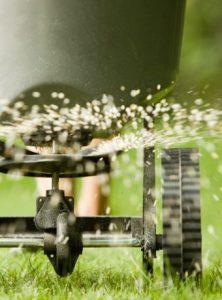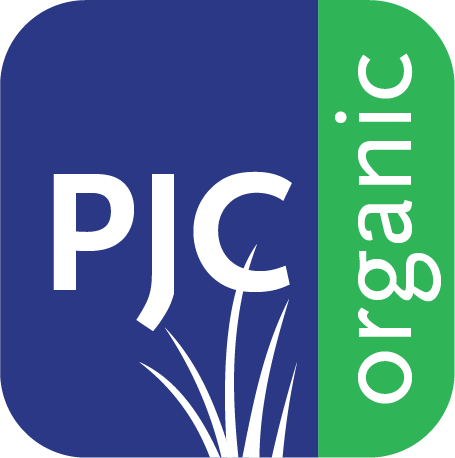We get a lot of organic fertilizer FAQs. That’s why, a few weeks ago, we covered Part 1 of The Basics of Organic Fertilizer. There, I answered four important questions:
- What’s the difference between “organic” & “synthetic” nitrogen fertilizers?
- Are all “organic” fertilizers the same?
- What is an “organic-based” fertilizer?
- Are PJC’s ProHealthy Turf® All-Natural Premium Fertilizers safe?
There are so many products on the market, it can be hard to sift through. What ones are truly all-natural and safe for the environment (and pets and people)? So, in this blog, we cover 5 additional frequently asked questions…
Organic liquid fertilizers vs. organic granular fertilizers? Which is better?
PJC Organic fertilizers and soil amendments are all granular. While liquids can serve a purpose in certain fertility programs. Granular products are more predictable in how much nutrients they provide and how long they’ll feed the turf. Liquid fertilizers require frequent applications because they don’t feed the turf plant as long as granular fertilizers, therefore increasing labor demands.
How much Nitrogen (# of N) is needed?
Under normal conditions in the Northeast we recommend approximately 2-2.5 pounds of N/1,000SF per season on a residential lawns. We recommend up to 3 pounds of N/1,000SF per season on athletic fields when using a Water Insoluble Nitrogen (WIN) fertilizer. This works out to be approximately 3-4 applications of PJC’s ProHealthy Turf® fertilizer at a rate of 10#/1,000SF depending on the turf species and the level of usage. Returning grass clippings could gain you an additional 0.5 – 1 pounds N per season.
Does an organic fertilization program cost more?
No! After reviewing the costs of numerous synthetic fertilizer products, water use, and mowing costs, we can say that an organic program does not cost more. On the contrary, an Organic Turf Care Program will save you money. Unlike chemical programs that require additional inputs year after year, in time an organic program will require less. Organic programs enhance soil health and thus require less inputs than conventional counterparts.
Do I need special equipment to carry out the work of an organic program?
 No! The PJC Practical Approach was created with simplicity in mind. Our granular products go through a standard walk behind or motorized spreaders to make applications easy and compatible with the equipment you already have.
No! The PJC Practical Approach was created with simplicity in mind. Our granular products go through a standard walk behind or motorized spreaders to make applications easy and compatible with the equipment you already have.
Do organics take longer to green up?
Assuming spring soil temperatures of 50⁰F, prior to any fertilizer applications, an organic lawn will green up quicker than a synthetic lawn because the soil biology is active. After an application, synthetic fertilizer green up will occur in about 2-3 days. While PJC’s ProHealthy Turf® All-Natural Fertilizers respond in about 7 days. However, organic fertilizers will sustain the turf much longer since the soil stores the nutrients and feeds the plant over time. Conversely, synthetic fertilizers feed the plant directly—making the plant dependent on inputs—and what isn’t used contaminates water through runoff and groundwater leaching.
Lastly, if you have more questions regarding the basics of organic fertilizer—or are needing product recommendations—contact us—we’re here for all your organic fertilizer FAQs!
